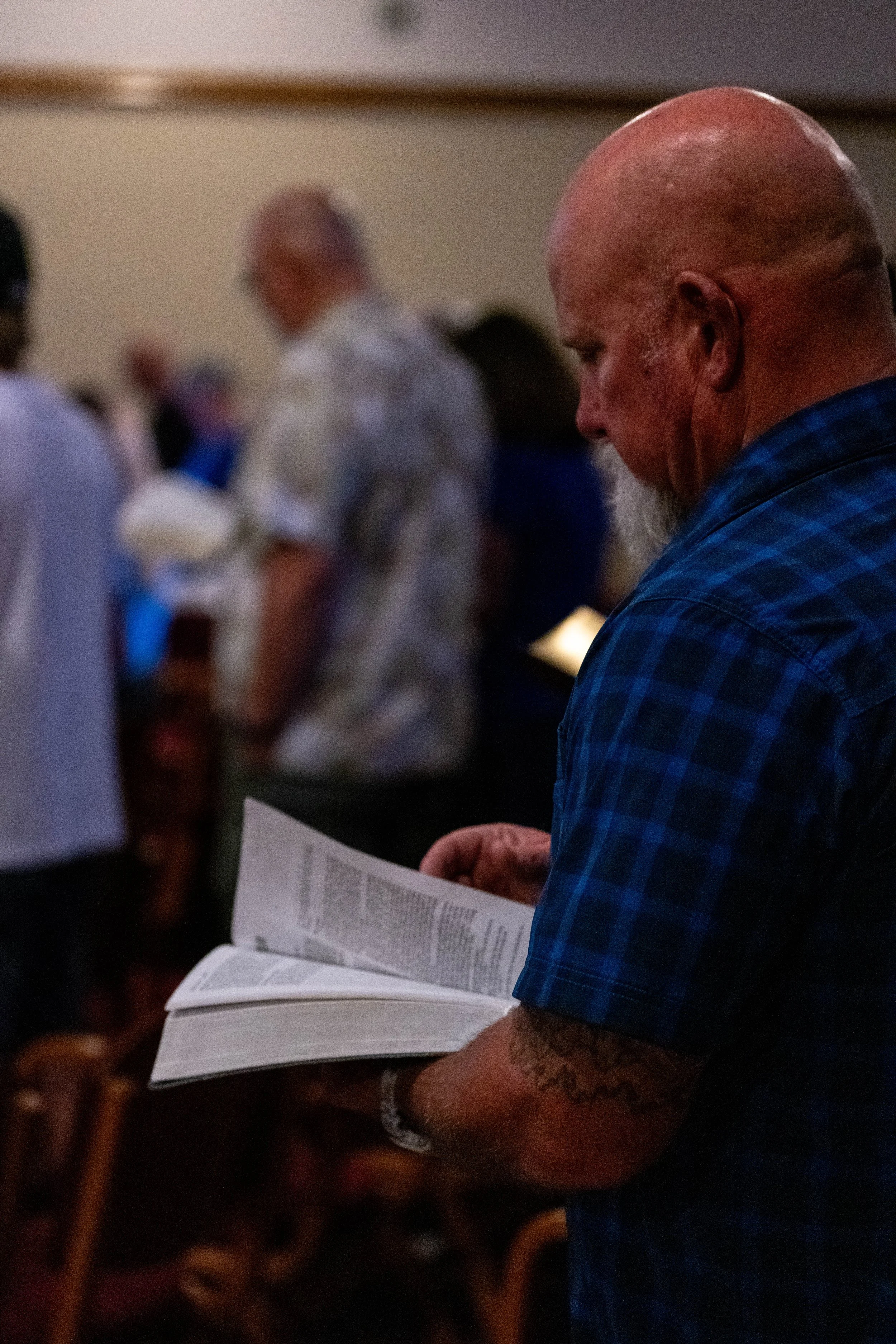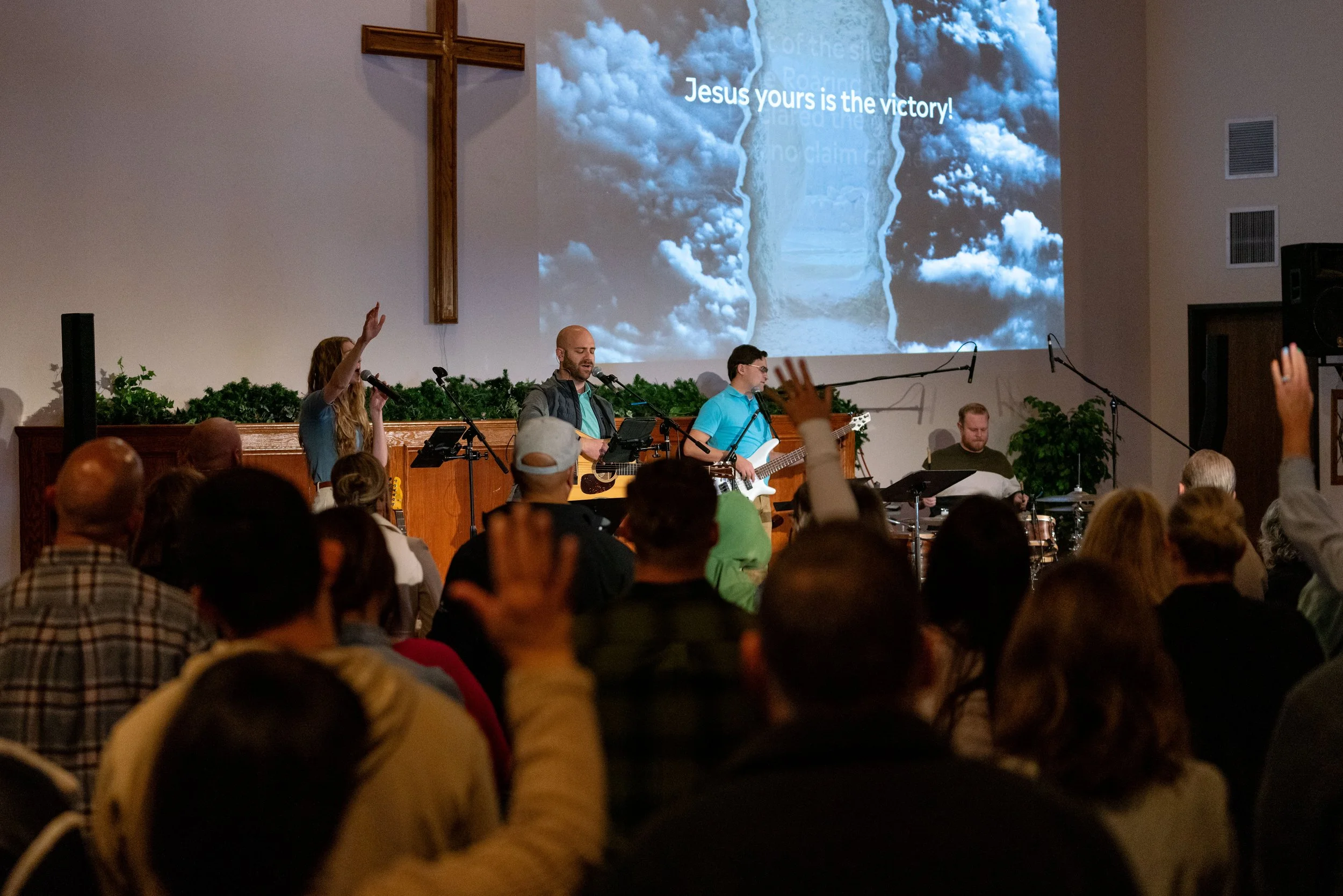
YOUR GIVING
FUELS THE
MISSION
We trust God,
not money.
Generosity and stewardship are the natural response to God's amazing generosity in our lives and our trust in Him to provide for us.
As for the rich in this present age, charge them not to be haughty, nor to set their hopes on the uncertainty of riches, but on God, who richly provides us with everything to enjoy.
1 Timothy 6:17
Stewardship is a chosen lifestyle where we give something, give it consistently and grow in our generosity.
90 > 100
Each one must give as he has decided in his heart, not reluctantly or under compulsion, for God loves a cheerful giver. And God is able to make all grace abound to you, so that having all sufficiency in all things at all times, you may abound in every good work.
2 Corinthians 9:7-8
When we give, we partner with what God is doing here and around the world.
Invest in eternity
They are to do good, to be rich in good works, to be generous and ready to share, thus storing up treasure for themselves as a good foundation for the future, so that they may take hold of that which is truly life.
1 Timothy 6:18-19
Learn more about stewardship.
Your giving goes directly to reaching Rancho Cucamonga, the Inland Empire, and the world.
CHECK OUT OUR FULL ADVANCE
PLAN HERE:
I WANT TO START MY GENEROSITY JOURNEY TODAY
I WANT TO BEGIN A LIFESTYLE OF
STEWARDSHIP TODAY
Best Way to Give
The best way to give is online. Click the Give Online button to set up recurring giving or give a one-time gift. We encourage you to use these tools to help you stay faithful in your giving. This helps Story Church predict budgets and plan our ministries faithfully.
Other Ways to Give
Sunday Services: Drop your gift in one of the black boxes.
Bill Pay: Have your bank mail a check directly to Story Church 7192 Jasper St, Rancho Cucamonga CA 91701.
Note for Online Giving: The church pays processing fees so we encourage you to give via ACH (1% fee) rather than a debit/credit card (2-3% fee).




























Questions to Consider
-
Generosity is the natural, consistent, and occasionally spontaneous giving of our material possessions to God’s service and to our communities because of and modeled after what Jesus Christ has done for us on the cross. As God “did not spare his own Son, but gave him up for us all” (Romans 8:32), so our posture toward God and others in response to his love should be one of cheerful sacrifice and generosity.
-
A steward is a person who has been entrusted with, and who manages, another’s resources according to the owner’s vision and values. Each of us was created for stewardship by God (Genesis 1:28). A steward is both a ruler with authority to govern resources and a servant accountable to the owner of those resources. The New Testament calls Christians caretakers of God’s truths and gifts — even God’s grace (1 Corinthians 4:1; 1 Peter 4:10). In addition to acting as responsible stewards of our God-given talents and skills, we must also be good stewards of the possessions and finances God has given to us.
-
In the Old Testament, believers were required to give a tenth of their income to the support of the ministry and the needs of the poor. The New Testament teaches that we should give as we are “able and even beyond [our] ability” (2 Corinthians 8:3). Therefore, the tithe (10%) is seen as a kind of minimum guideline for giving.
-
Rather than a black and white answer to the question of gross vs. net tithing, prayerfully consider this question: should we prioritize our spending, investments, and retirement contributions before our generosity to the Lord? Scripture teaches that we are to give back to God our “first fruits” (Exodus 23:16, 19). Proverbs 3:9 encourages us to “honor the Lord with [our] wealth, with the first fruits of [our] crops,” meaning the primary and choicest of our possessions. God has modeled “first fruits” by giving us his son, Jesus Christ. Our response to God should reflect our love of and devotion to him.
-
There are seasons in our economic life. There are financial responsibilities to our families, friends, communities, and in some cases, creditors. In any stage of life, good planning is necessary to increase our giving over time without neglecting our legal and personal financial obligations. For some people, 10% is too low a starting point. For others, giving even 5% is a sacrifice. The goal is to increase one’s commitment up to and above 10%, so that it models Christ’s love to our communities.
-
Your gift is an act of personal worship to God in response to his grace in your life and the gift of his Son. The allocation of your money and time to God’s service should be a byproduct of prayer and of consultation with other Christians to whom you are accountable. If you consider Story your “home church,” you should give of your tithe and offerings to the church where you invest your time and where others are investing in you.
-
We certainly must be good stewards of all that God has given us: money, time, skills, influence and position. Therefore, generosity and stewardship are more than but not less than our financial resources. Jesus said, “For where your treasure is, there your heart will be also” (Matthew 6:21). Our heart’s inclination is to worship anything other than God. In Southern California culture, money has become an idol. Therefore, giving it away generously to God’s service can liberate us from our idolatry and fix our eyes on Jesus (Hebrews 12:2).
-
From the beginning, our vision has been to build not just a healthy church but also, through the ministries of the church, to fulfill the command of Matthew 28:19-20 and make disciples.
It is easy to think that your individual contributions do not make a difference to the work that is being done. However, more than 95% of Story’s operating budget comes from the weekly giving of our members and regular attendees. Your giving counts, and it's the primary way God provides for our ministries!
PLEASE NOTE:
If you wish to designate a contribution to a specific person, please note that although Story Church will make every effort to honor the contribution designation of the donor, contributions become the property of Story Church, and the church has the discretion to determine how to best use contributions to carry out its functions and purposes. Such control of the funds by the church is required to ensure that they will be used to carry out its functions and purposes and to ensure donors’ contributions satisfy requirements to maintain our tax-deductible status. Thank you for your understanding and generosity!


